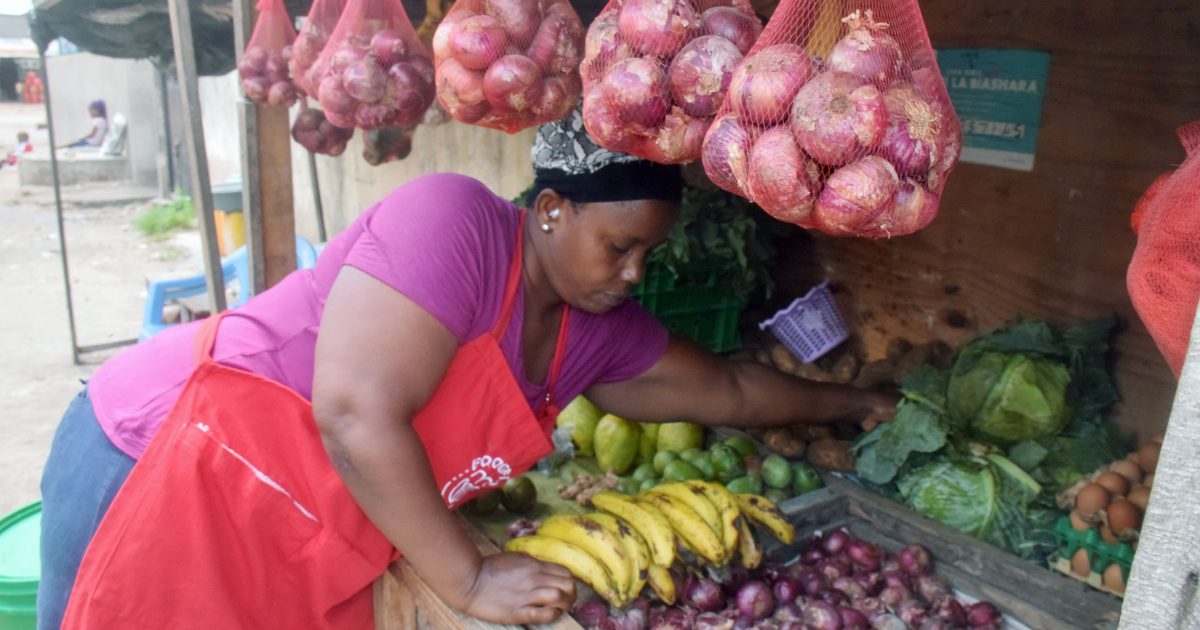The county government of Mombasa has intensified efforts to uphold food safety and hygiene standards among traders to ensure a clean and safe environment for consumers.
Through joint training sessions with the Global Alliance for Improved Nutrition, Mama mbogas, and other vendors are being equipped with the knowledge to maintain high hygiene standards and operate responsibly to safeguard public health.
The County’s public health officials have also heightened awareness amongst hotels and food handlers, urging strict compliance with health regulations. Medical certifications, regular inspections, and official certificates are being issued to guarantee adherence.
As the festive season climaxes, residents are being encouraged to prioritize their health by consuming quality food, eating at certified establishments, and maintaining clean surroundings to prevent food poisoning cases and other health risks.
Speaking in Jomvu, Public Health Officer for Mombasa County Hildergard Wasike, noted that they have been working closely with GAIN on various food safety trainings.
“We have done several activities together to train our traders to maintain high standards of hygiene and ensure they work in a clean environment,” Wasike noted.
GAIN is an organization that was established in 2002 and launched by the United Nations to tackle the human suffering caused by malnutrition. GAIN started working in Kenya in 2010, and has helped many people in matters of nutrition.
John Mung’oo Representing GAIN highlighted that they conduct research to identify nutrition deficiencies in communities adding that their current major project is dubbed “Vegetables for All,” which encourages people to consume more vegetables.
“Research shows that we should eat 400 grams of vegetables and fruits daily, but the amount we consume is less than 130 grams. So we have quite a journey to sensitize people countrywide on the importance of consuming more vegetables,” Mung’o said.
“When it comes to meal portions, vegetables should make up half of your plate, with one-quarter consisting of carbohydrates and the remaining quarter comprising protein,” Mung’o emphasized.
He said the project is currently active in five counties of Kiambu, Machakos, Nairobi, Nakuru, and Mombasa. In Mombasa, he said, they work with various stakeholders, including the Department of Public Health and small-scale vegetable vendors (mama mbogas).
“We have registered 2,400 small-scale vegetable vendors (mama mbogas) in Mombasa, with a target of 10,000 across Kenya. We assist these vendors by providing training on food safety and hygiene, as well as equipping them with skills to manage their businesses effectively. This includes training on branding and improving their overall presentation,” he added.
Mung’o said that they have conducted different research and discovered mama mbogas face significant challenges, including having to often wake up as early as 3am to purchase vegetables at the market.
To address this, he said they are now promoting a market facilitator model, where the youth take on the responsibility of going to the market early to deliver produce directly to the vendors at their stalls.
Unlike brokers, he specified that market facilitators, are suppliers who understand the challenges faced by mama mbogas and work with them in a collaborative and supportive manner. In Mombasa County, they have successfully registered 28 market facilitators so far.
He added that they have officers who often visit these market facilitators to provide encouragement and mentorship on matters such as hygiene and business management.
Safari Ali, a market facilitator, has been in the market business for almost 20 years. He noted that he initially had two customers and now serves over 50 people since he became a market facilitator working in collaboration with the Food fiti program.
He added that through the Food fiti, his profits have grown from Sh1,000 per day to over Sh8,000.
“As a market facilitator, I simplify Mama mboga’s life and streamline their transportation of goods from the market. This makes it easier to supply goods from here, reduces costs, and ensures they receive good quality stock and on time,” Safari said.
Nancy Shithaiga, a mama mboga in Jomvu highlighted that, before partnering with Food fiti, she faced numerous challenges, including waking up at 3am to go to the market. She added that transportation delays were also common which added to the strain of having her children late for school.
“I have become more efficient with my time because the market facilitator delivers vegetables directly to my stall. In the evening, I simply send a list of what I need, and by morning, everything is delivered,” she remarked.
She added that Food Fiti has been incredibly beneficial to her, especially through the training sessions she has attended with them noting that she has learnt how to maintain cleanliness in her business environment, sell high-quality products, maintain a steady clientele and encourage her customers to eat more vegetables.
By Fatma Said



